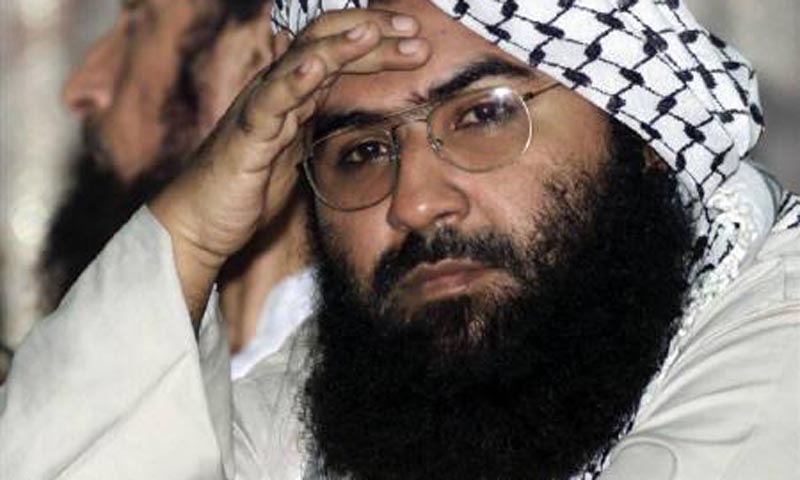The United States govt praised Pakistan’s commitment to ‘take prompt and decisive action’ against the Pathankot air base attackers, according to a State Department statement issued earlier today after the Pak-US strategic dialogue.
The dialogue held in Washington was co-chaired by US Secretary of State John Kerry and Prime Minister’s Adviser on Foreign Affairs Sartaj Aziz.
“Noting the steps taken by Pakistan to date, including the detention of Jaish-e-Mohammad (JeM) leader Maulana Masood Azhar, the US appreciated PM Nawaz’s stated commitment to take prompt and decisive action on this investigation and to bring the perpetrators of the January 2, 2016 attack on the Pathankot air base to justice,” the statement read.
The statement came a day after India linked Pakistan to a militant attack on an air base that killed seven soldiers in January. India had previously blamed militants from the extremist group Jaish-e-Mohammed (JeM) for the assault on Pathankot air base in the northern state of Punjab, which triggered two days of intense gun battles.
However, earlier yesterday, New Delhi said the militants could not have carried out the brazen attack on the air base near the border without Pakistan’s collusion.
The US also stressed the need for a meaningful dialogue between Pakistan and India for the peaceful solution of all outstanding issues, including Kashmir.
The delegations underscored that all parties in the region should continuously act with maximum restraint and work collaboratively towards reducing tensions.
Further, both sides expressed their conviction that a robust, long-term bilateral relationship remains critical to regional and international security along with prosperity.
Leaderships of both countries agreed that a strong, prosperous, and democratic Pakistan is an essential partner for the United States in advancing these shared goals.
“Pakistan’s prosperity is good for the region as well as for the United States,” Kerry said.
Kerry and Aziz expressed satisfaction on Secretary of Commerce Penny Pritzker’s visit to Islamabad for US-Pakistan Economic Partnership Week in 2015.
Reaffirming the importance of strategic dialogue, which provides vision and direction for this bilateral partnership, Aziz and Kerry reviewed the progress made in its six working groups, which represent core areas of joint interest and cooperation, including: energy, security, strategic stability, and nonproliferation, the Defense Consultative Group, law enforcement and counterterrorism, economics and finance and education, science, and technology.
They also looked forward to the fourth annual US-Pakistan Business Opportunities Conference, the first to be held in the United States, which will bring scores of US and Pakistani executives from across all sectors to New York City this year, and a meeting under the Trade and Investment Framework Agreement (TIFA) in 2016.
The two countries also acknowledged the importance of sustaining cooperation on shared interests through US civilian assistance, in line with the intent of legislation known as the ‘Kerry-Lugar-Berman’ act. Finally, they charged the Working Groups with continuing to meet according to a mutually determined schedule.
“The United States commended Pakistan’s exemplary generousity in hosting one of the largest, longest lasting refugee populations and reaffirmed the US commitment to humanitarian assistance for Afghan refugees, returnees, and displaced persons in the region,” the statement read.
The two sides reiterated their commitment to facilitate the orderly return and reintegration of Afghan refugees to Afghanistan.
Meanwhile, Kerry and Aziz further commended the substantial progress made by Pakistan, Afghanistan, Kyrgyzstan, and Tajikistan on the CASA-1000 electricity project. The four countries are now working together for implementation of the project by 2018. They welcomed the inaugural ceremony of the CASA-1000 project, to be hosted by Tajikistan in Dushanbe in May 2016.
The statement added, “Pakistan and US are committed to further strengthening the long-term partnership between the two countries, which is built on robust cooperation across a wide range of issues and reflecting shared interests and common values.”
Both sides reiterated their commitment towards democracy, human rights, economic growth, and respect for international law as essential for long-term regional peace and prosperity, and agreed that the two governments would meet for the next Ministerial-Level Strategic Dialogue in 2017.






